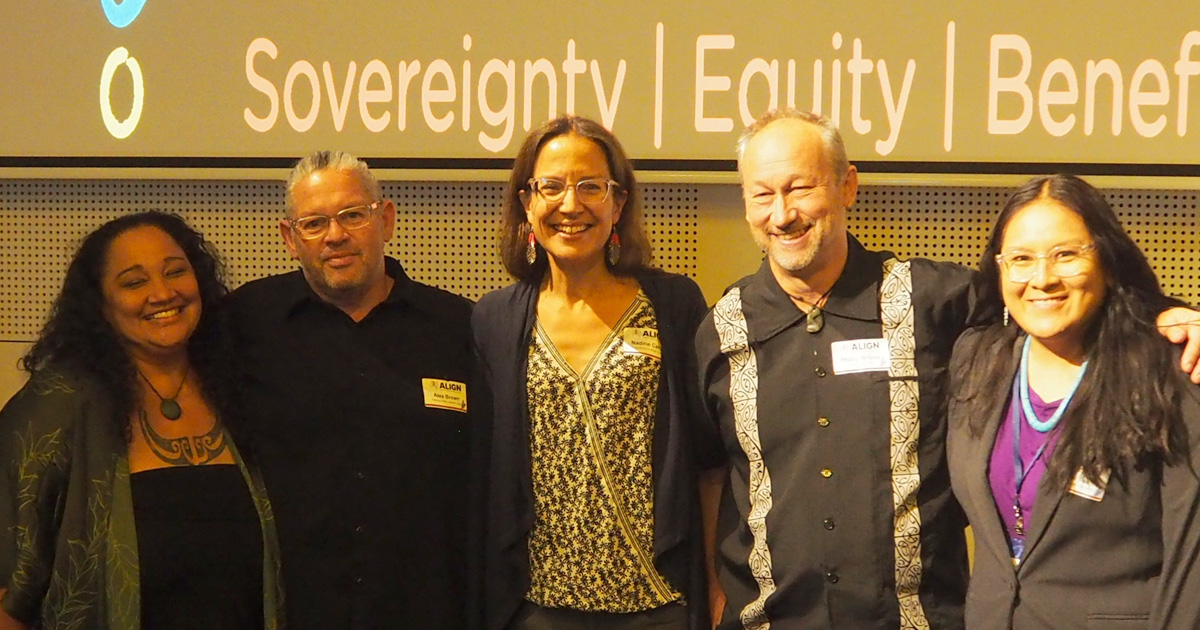Search

News & Events
Five The Kids researchers awarded prestigious grantsSeveral The Kids Research Institute Australia researchers will share in more than $7.5 million in prestigious Investigator Grants to pursue a range of innovative child health research.
Research
Patient-derived xenografts and single-cell sequencing identifies three subtypes of tumor-reactive lymphocytes in uveal melanoma metastasesUveal melanoma is a rare melanoma originating in the eye's uvea, with 50% of patients experiencing metastasis predominantly in the liver. In contrast to cutaneous melanoma, there is only a limited effectiveness of combined immune checkpoint therapies, and half of patients with uveal melanoma metastases succumb to disease within 2 years.
Research
A common genetic variant of a mitochondrial RNA processing enzyme predisposes to insulin resistanceMitochondrial energy metabolism plays an important role in the pathophysiology of insulin resistance. Recently, a missense N437S variant was identified in the MRPP3 gene, which encodes a mitochondrial RNA processing enzyme within the RNase P complex, with predicted impact on metabolism. We used CRISPR-Cas9 genome editing to introduce this variant into the mouse Mrpp3 gene and show that the variant causes insulin resistance on a high-fat diet.

News & Events
Powerful new network to ensure Indigenous Australians can benefit from genomic medicineA national alliance of the brightest minds in genomic science, academia, policy makers, industry and Indigenous leaders will work to break down barriers to ensure Aboriginal and Torres Strait Islander people can benefit from advances in genomic medicine if they choose.
Research
Single-cell transcriptomic and spatial landscapes of the developing human pancreasCurrent differentiation protocols have not been successful in reproducibly generating fully functional human beta cells in vitro, partly due to incomplete understanding of human pancreas development. Here, we present detailed transcriptomic analysis of the various cell types of the developing human pancreas, including their spatial gene patterns. We integrated single-cell RNA sequencing with spatial transcriptomics at multiple developmental time points and revealed distinct temporal-spatial gene cascades.
Research
Deciphering IGH rearrangement complexity and detection strategies in acute lymphoblastic leukaemiaAcute lymphoblastic leukaemia is a highly heterogeneous malignancy characterised by various genomic alterations that influence disease progression and therapeutic outcomes. Gene fusions involving the immunoglobulin heavy chain gene represent a complex and diverse category.
Research
Benchmarking Imputed Low Coverage Genomes in a Human Population Genetics ContextOngoing advances in population genomic methodologies have recently enabled the study of millions of loci across hundreds of genomes at a relatively low cost, by leveraging a combination of low-coverage shotgun sequencing and innovative genotype imputation methods. This approach has the potential to provide abundant genotype information at low costs comparable to another widely used cost-effective genotyping approach-that is, SNP panels-while avoiding potential issues related to loci being ascertained in distantly related populations.
Research
Epigenomic variability is associated with age-specific naïve CD4 T cell response to activation in infants and adolescentsChildhood is a critical period of immune development. During this time, naïve CD4 T cells undergo programmed cell differentiation, mediated by epigenetic changes, in response to external stimuli leading to a baseline homeostatic state that may determine lifelong disease risk. However, the ontogeny of epigenetic signatures associated with CD4 T cell activation during key developmental periods are yet to be described.
Research
DraculR: A Web-Based Application for In Silico Haemolysis Detection in High-Throughput microRNA Sequencing DataThe search for novel microRNA (miRNA) biomarkers in plasma is hampered by haemolysis, the lysis and subsequent release of red blood cell contents, including miRNAs, into surrounding fluid. The biomarker potential of miRNAs comes in part from their multicompartment origin and the long-lived nature of miRNA transcripts in plasma, giving researchers a functional window for tissues that are otherwise difficult or disadvantageous to sample.
Research
Randomised clinical trial using Coronary Artery Calcium Scoring in Australian Women with Novel Cardiovascular Risk Factors (CAC-WOMEN Trial): Study protocolCardiovascular disease (CVD) is the leading cause of death in women around the world. Aboriginal and Torres Strait Islander women (Australian Indigenous women) have a high burden of CVD, occurring on average 10-20 years earlier than non-Indigenous women.
